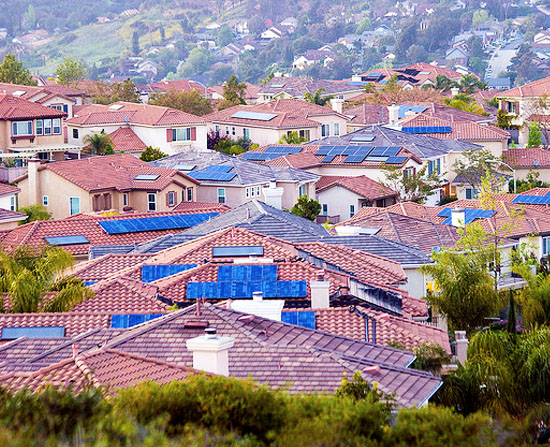Japan is going to create a nationwide "solar" power system

In general, there is nothing surprising in the fact that the state that suffered as a result of a man-made disaster (we will not discuss the causes and consequences of the accident at a nuclear power plant, and so any newspaper / magazine / online media mention this several times per day), is going to develop alternative energy infrastructure. The Japanese government is going to launch an extensive program to create a national network of solar cells. So far these are only plans, but plans are quite interesting.
At the G8 summit, which will be held in France, this program will be set out in detail, but so far not much is known. So, the government is going to order that all buildings in Japan (perhaps with a few exceptions), both private and corporate, have solar panels. All these elements will be combined into a single system that will supply electricity to the whole country (probably, this is a certain percentage of the total energy consumption).
')
The plan to create a unified "solar" energy system is long-term, its completion is planned by 2030. But for the Japanese, long-term programs are not a problem, they have enough patience, there is no doubt. In general, if this plan becomes a reality, then it will probably be the first power system of such a scale to the world, based on alternative ways of producing energy.
Well, we wish the Japanese success, this is clearly not the easiest task - to form a single energy system from thousands and thousands of individual solar cells.
Via dvice
Source: https://habr.com/ru/post/119873/
All Articles